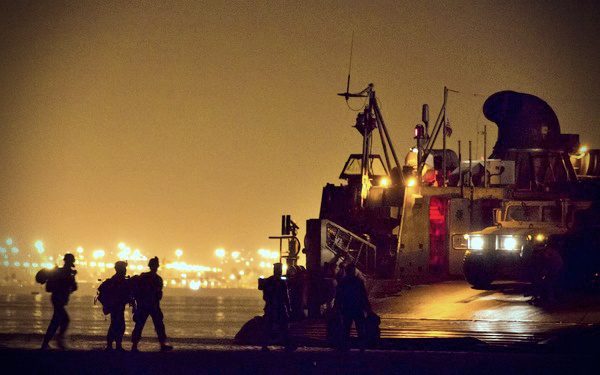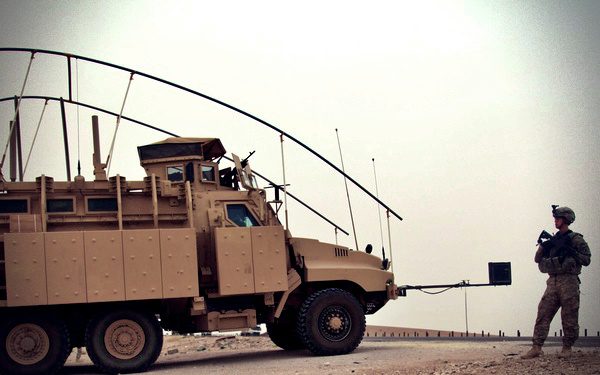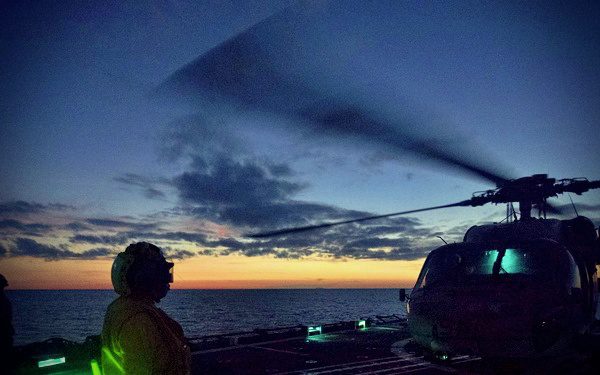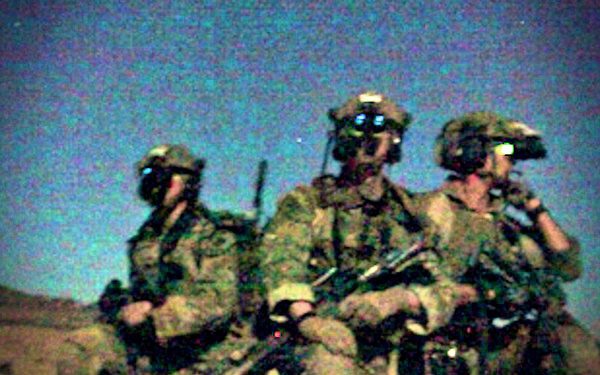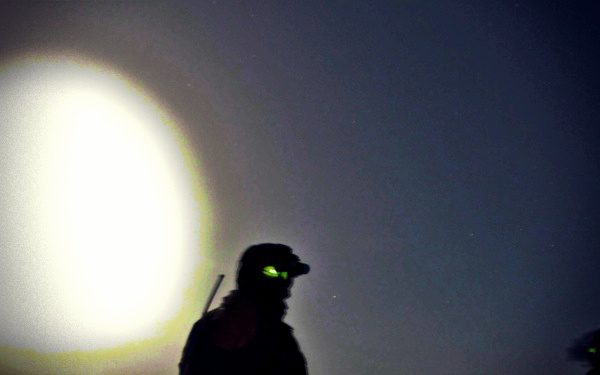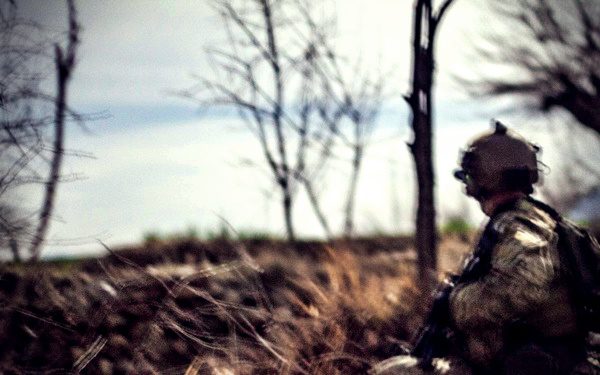Overview of the process for interviewing witnesses
Witness Access Issues
RCM 701(e) provides that “[e]ach party shall have adequate opportunity to prepare its case and equal opportunity to interview witnesses and inspect evidence. Accordingly, no party may unreasonably impede the access of another party to a witness or evidence.”
On the other hand, “a potential witness at a criminal trial cannot normally be required to submit to a pretrial interview for either side.” United States v. Alston , 33 M.J. 370, 373 (C.M.A. 1991).
Therefore, an issue arises when military defense lawyers, after the witness inquires or sua sponte , advise the witness about agreeing to an interview with opposing counsel. Army Rule 3.4 makes clear that a “lawyer shall not . . . request a person other than a client to refrain from voluntarily giving relevant information to another party unless (1) the person is a relative or an employee or other agent of a client; and (2) the lawyer reasonably believes that the person’s interests will not be adversely affected by refraining from giving such information.” AR 27-26, Rule 3.4 (f); see also ABA Standard 11-6.3; 3-3.1(d); ABA Model R. Prof. Conduct 3.4Generally speaking, it is appropriate to inform a witness that it is their choice whether to speak with an opposing counsel or investigator. See ABA Standards for Supreme Court of the United States Criminal Justice: Prosecution Function 3-3.1, Comment.
However, military defense lawyers should scrupulously avoid attempting to subtly encourage witnesses not to agree to speak with the other party. It is a good practice to advise a witness that their failure to speak to the other side can be fertile ground for cross-examination. Counsel could also tell the witness that if they do not agree to meet with the other party, the witness might be ordered to give a deposition under RCM 703.
Nonetheless, before charges are preferred during the investigatory phase, trial counsel may ask potential witnesses not to disclose information. In doing so, trial counsel may explain to them the adverse consequences that might result from disclosure (such as compromising the investigation or endangering others). However, absent a law or court order to the contrary, trial counsel should not imply that it is unlawful for potential witnesses to disclose information related to or discovered during an investigation. Barring exceptional circumstances, the lawyers should advise those witnesses that they may agree to be interviewed by military defense lawyers after the preferral of charges. See ABA Standards for Criminal Justice: Prosecutorial Investigations 1.4 (d).
When the government is interviewing potentially exculpatory witnesses, counsel should not threaten criminal prosecution of perjury to prevent a witness from testifying. For example, the United States v. Edmond, 63 MJ 343 (CAAF 2006) (a trial counsel threatened a civilian witness (former Soldier) with prosecution by the SAUSA if he testified and then counsel had the SAUSA reiterate the threat of prosecution).
It is also “proper to caution a witness concerning the need to exercise care in subscribing to a statement prepared by another person.” ABA Standards for Criminal Justice: Prosecution Function 3-3.1, Comment.
Asking Potential Witnesses Not to Volunteer Information
AR 27-26 Rule 3.4 forbids a lawyer from requesting an individual to not voluntarily provide information unless it is the client or a relative, employee, or agent of the client. That person’s interest will not be adversely affected by their silence.
AR 27-26 Rule 4.3 dictates that a lawyer should not give any advice to an unrepresented person other than to obtain military defense lawyers, impliedly authorizing an attorney to recommend to an unrepresented witness the attorney is interviewing that the witness seeks military defense lawyers.
Ethics of Interviewing Witnesses
“In one sense, the term ‘legal ethics’ refers narrowly to the system of professional regulations governing the conduct of lawyers. In a broader sense, however, legal ethics is simply a special case of ethics in general, as ethics is understood in the central traditions of philosophy and religion. From this broader perspective, legal ethics cuts more deeply than legal regulation: it concerns the fundamentals of our moral lives as lawyers.” Deborah L. Rhode & David Luban, Legal Ethics 3 (1992) (quoted under “Legal Ethics” in Black’s Law Dictionary 976 (9th ed. 2004))
Ethical considerations regarding investigations and interviewing appear in four general categories
- Investigatory responsibilities.
- Dealing with access issues such that the rights of witnesses and defendants are respected.
- Techniques used to investigate and/or prepare witnesses for their testimony.
- Disclosure obligations which may arise from interviews.
Sources of Rules and Guidelines
Army Regulations. See, e.g., AR 27-10, Military Justice; AR 27-26, Rules of Professional Conduct for Lawyers. ABA Standards for Criminal Justice. The standards are intended to be used as a guide to professional conduct and performance. For example, according to AR 27-10, para. 5-8c, “Judges, counsel, and court-martial clerical support personnel will comply with the American Bar Association Standards for Criminal Justice (current edition) to the extent they are not inconsistent with the UCMJ, MCM, directives, regulations . . .or other rules governing the provision of legal services in the Army.” In addition, the Standards have discussion sections that deal with many of the thorny issues counsel run into when investigating their cases.
Case Law. See, e.g., Geders v. the United States, 425 US 80, 90 n.3 (1976) (“An attorney must respect the important ethical distinction between discussing testimony and seeking improperly to influence it.”). Ethical rules from your bar of licensure.
Interviewing Witnesses for a Court-Martial
Contested military trials are won or lost on the testimony of witnesses, whether elicited by direct examination, cross-examination, or examination by the Military Judge or court members. Captain Alan K. Hahn, Preparing Witnesses for Trial: A Methodology for New Judge Advocates, Army Law., July 1982 at 1.
This outline is focused on the basics of preparing a witness for trial, whether they are friendly or hostile. Trial preparation presupposes that military defense lawyers have already thoroughly investigated the case and have previously interviewed the witness.
It is the usual and legitimate practice for ethical and diligent military defense lawyers to confer with a witness he is about to call before his giving testimony…but military defense lawyers also have moral and ethical obligations to the court, embodied in the cannons of ethics of the profession…Mathew Rosengart, Preparing Witnesses for Trial: A Post Moussaoui Primer for Federal Litigators, Fed. L., Nov/Dec 2007, at 36. See Outline on Ethics of Investigations and Interviews
Investigatory Responsibilities
A trial counsel ordinarily relies on military police, CID, and command personnel to investigate alleged criminal acts. Still, the trial counsel has an affirmative responsibility to investigate suspected illegal activity when others are not adequately dealt with. However, this typically will mean requesting one of the above entities to renew or reopen their investigation. See ABA Standards for Criminal Justice: Prosecution Function 3-3.1(a).
Throughout the investigation, as new information emerges, the trial counsel should reevaluate: Judgments or beliefs as to the guilt or status of persons or entities identified as “witnesses,” “victims,” “subjects,” and “targets,” and recognize that the status of such persons may change. The veracity of witnesses and confidential informants and assess the accuracy and completeness of the information that each provides. See ABA Standards for Criminal Justice: Prosecutorial Investigations 1.4(a).
Upon request and if known, the trial counsel should inform a person or the person’s military defense lawyers whether the person is considered a target, subject, witness, or victim, including whether their status has changed unless doing so would compromise a continuing investigation. See ABA Standards for Criminal Justice: Prosecutorial Investigations 1.4(b).
Defense counsel should conduct a prompt investigation of the circumstances of the case. See ABA Standards for Criminal Justice: Defense Function 4-4.1(a). The investigation should include the interview of witnesses. Id., Comment.
Whether you are a trial counsel conducting an official investigation or military defense lawyers investigating the facts surrounding a case, “a lawyer shall not use means that have no substantial purpose other than to embarrass, delay, or burden a third person, or use methods of obtaining evidence that violate the legal rights of such a person.” AR 27-26, Rule 4.4.
Notwithstanding this obligation to avoid needless harm, “an Army lawyer may communicate a correct statement of facts that includes the possibility of criminal action if a civil obligation is not fulfilled.” AR 27-26, Rule 4.4, Comment.
Timing of the interview
Military defense lawyers should always interview witnesses as early in the case as possible. Every minute, hour, or day that passes results in a loss of memory, a loss of investigative opportunities, and/or the potential loss of witnesses. Trial counsel, in particular, should cultivate a relationship with CID and MPI that provides for a continuous channel of communications so that trial counsel, without making themselves a witness, can be present as early during (not after) the official investigation as possible.
Where to find people worth interviewing
- Within the case file;
- At the unit;
- By asking witnesses at the Article 32 who else might know certain facts and who else should be interviewed;
- From asking questions of the escorts, bailiffs, and enlisted personnel associated with the processing of a case;
- From asking people familiar with the crime or crime scene; and
- From asking people familiar with the primary witnesses.
- Setting the conditions for an effective interview
- Conduct the interview at the crime scene whenever practicable;
- Make sure a reliable witness is present; an
- Have a means to document the interview
Obstacles to a good interview
Situational: Try to avoid situations in which either party will feel rushed during the interview process. Lawyers as Counselors, at 44.
Avoid group interviews. At best, they are a poor means to obtain evidence (one witness will always assert themselves), and it will create the appearance that you are attempting to improperly sync testimony. Matthew Rosengart, Preparing Witnesses for Trial: A Post Moussaoui Primer for Federal Litigators, Fed. L., Nov/Dec 2007, at 36.
Carefully consider whether or not to interview a person alone or with others from their family, friends, or unit present. Advantages: Sometimes, witnesses will be more forthcoming with a spouse, NCO, or commander present. Disadvantages: Most people are far less likely to speak candidly if they are distracted by concerns about the effects their statement will produce on other listeners. This effect is particularly true with more sensitive crimes.
Personal – Most conversations are simply monologues delivered in the presence of a witness – Margaret Miller. Put another way, you have to close your mouth to listen.
Performance Distracters. Lawyers as Counselors, at 44. You are focused on preparing for the next question when you should be listening to the answer to the question you just asked. You believe you already know the salient issues, so you steer the conversation too soon and too much, thereby missing important facts. You disclose too much information, thereby alerting the witness to your thoughts on the case. This is a particular danger for hostile witnesses.
Structural: The tell me everything approach to interviewing provides very poor structure and very little memory stimulation to the interview process. It is a poor way to develop a coherent narrative of events. Using this format, you must also expect disjointed and confusing answers to questions that skip back and forth chronologically—lawyers as Counselors, at 117.
The element-by-element questioning approach exposes military defense lawyers to a danger of premature diagnosis’ of the case. Moreover, it may prevent you from learning about significant events that are not encompassed by your initial theory.
Overview of Witness Interviewing Techniques
The key to witness interviews is to have a game plan before you start the interview. Don’t just walk in with a copy of the sworn statement and run down the sworn statement. Sworn statements are just starting points for you to think about your case (they are also important later on for impeachment). For witness interviews, you should have a list of things that you think this witness can help (or hurt) you with. You generated this list when you did your case analysis. Cover these items in your interview.
Be efficient. When you interview the company commander, find out what she knows about the offense, what she knows about the search and seizure issue, what she knows about the accused’s military character, what she knows about the impact on the unit, etc. Do it all at once. Don’t keep calling back because only later did you realize how else this witness impacted your case.
A witness statement is not a Shakespearean play. It is not a script, and witnesses will invariably suffer memory loss, alter their testimony (intentionally or unintentionally), or fail to report important information at some point in every case. Wise military defense lawyers, therefore, view prior written statements as merely the starting point for an interview; and then try to memorialize what they learn in the interview in a way that locks in the witness to those facts.
The goal of CID and MPI is to close a case. Thus, the standard to opine probable cause is, by definition, lower than that of a contested criminal case. For that reason, military defense lawyers should never assume that investigators probed facts to a sufficient level of detail.
Resources
David A. Binder, et al., Lawyers as Counselors: A Client-Centered Approach (2d ed. 1991). Francis Lee Bailey and Henry B. Rothblatt, Investigation and Preparation of Criminal Cases (2d ed.1985).
Confidentiality
Defense counsel, in particular, must remember not to violate their duty of confidentiality to their client when interviewing witnesses. See AR 27-26, Rule 1.6. For example, military defense lawyers may want to reveal the client’s account of an event to a witness to assist in the interview. Such disclosure may be exempt from confidentiality as “impliedly authorized to carry out the representation.” However, the better practice is to discuss the possibility of such disclosures with the client and obtain the client’s consent beforehand.
Presence of Third Parties
When interviewing or preparing witnesses, it is best practice to be accompanied by another person. That person can, if necessary, serve as a witness to the witness’ statements during the interview if impeachment is later necessary. Without the third person’s presence, an attorney should be prepared to forgo the impeachment of that witness based upon the interview. See AR 27-26, Rule 3.7 (Barring rare exceptions, a “lawyer shall not act as advocate at a trial in which the lawyer is likely to be a necessary witness.”); see also ABA Standards for Criminal Justice: Prosecution Function 3-3.1(g); ABA Standards for Criminal Justice: Defense Function 4-4.3(e).
The ability to impeach a witness based on statements at the interview can also be addressed by requesting the witness sign a statement of material facts after the interview is complete. See ABA Standards for Criminal Justice: Prosecution Function 3-3.1, Comment; ABA Standards for Criminal Justice: Prosecution Function 4-4.3, Comment.
Military defense lawyers should consider themselves responsible for the actions of any third party who is interviewing with them. If the lawyer is aware of conduct that would violate the ethical rules were it performed by the lawyer, the lawyer should stop and correct the conduct. See AR 27-26, Rule 8.4(a) (“It is professional misconduct for a lawyer to . . . violate these Rules . . ., knowingly assist or induce another to do so, or do so through the acts of another.”).
Compensation
“A lawyer shall not . . . offer an inducement to a witness which is prohibited by law.” AR 27-26, Rule 3.4(b). As stated in the Comment, “it is not improper to pay witness’ expenses or to compensate an expert witness on terms permitted by law. [However, the] common law rule in most jurisdictions is that it is improper to pay an occurrence witness any fee for testifying and that it is improper to pay an expert witness a contingent fee.” AR 27-26, Rule 3.4, Comment; see ABA Standards for Criminal Justice: Prosecution Function 3-3.2(a).
De minimus “gifts,” such as providing snacks during a long interview session, would not generally fall afoul of this prohibition. However, if the witnesses are cooperators and/or inmates, such small luxuries designed to encourage cooperation could be problematic. Even if such items would not constitute “inducements” under this rule, trial counsel may have to advise defense counsel that the cooperators received special treatment under Giglio v. the United States, 405 US 150 (1972). See the United States v. Boyd, 55 F.3d 239 (7th Cir. 1995) (extreme case where prosecutors allowed cooperating witnesses unlimited and unsupervised telephone privileges, conjugal visits, and other special treatment during witness preparation sessions).
Truthfulness
Military defense lawyers must ensure that they conduct their interviews consistent with their ethical duties regarding truthfulness. “In the course of representing a client, a lawyer shall not knowingly: (a) make a false statement of a material fact or law to a third person; or (b) fail to disclose a material fact to a third person when disclosure is necessary to avoid assisting a criminal or fraudulent act by a client unless disclosure is prohibited by Rule 1.6.” AR 27-26, Rule 4.1.
While Rule 4.1 makes a failure to disclose an ethical violation in very limited circumstances, one other such exception exists. When “dealing on behalf of a client with a person who military defense lawyers do not represent, a lawyer shall not state or imply that the lawyer is disinterested. When the lawyer knows or reasonably should know that the unrepresented person misunderstands the lawyer’s role in the matter, the lawyer shall make reasonable efforts to correct the misunderstanding.” AR 27-26, Rule 4.3.
Having victims present during court-martial proceedings can have a powerful impact. As such, trial counsel may encourage victims to be present even if their testimony is complete or otherwise unnecessary. Nonetheless, trial counsel should not “require victims and witnesses to attend judicial proceedings unless their testimony is essential to the prosecution or is required by law.” ABA Standards for Criminal Justice: Prosecution Function 3-3.2(f)
Counsel should not imply the existence of legal authority to interview an individual or compel the attendance of a witness if counsel does not have such authority. ABA Standards for Criminal Justice: Prosecution Function 3-3.2(e); See the United States v. Villa-Chaparro, 115 F.3d 797 (10th Cir. 1997) (US Attorney’s Office improperly used Rule 17 subpoenas to bring a witness in for pretrial interviews).
Phase I: The Time Line
Why do we want a TimeLine? “One common feature of persuasive litigation stories is that they have a narrative structure…Think back to ‘Jack and the Beanstalk’… Chronological narratives such as ‘Jack and Beanstalk’ are…the typical medium of human communication…The importance of timeline questioning is that it helps you develop understandable and meaningful narrative structures. Lawyers as Counselors, at 113-114. In court, you typically elicit testimony in chronological order. Timelines are thus a preview of testimony. Lawyers as Counselors, at 117.
When do we want a TimeLine?
At the start, your contact with the witness should begin by developing a timeline from which you and the witness can explore particular events in sequence. This timeline is the first phase of the interview.
What are the three parts of the TimeLine?
They consist of discrete events;
As much as possible, they are ordered chronologically;
The events are substantially free of specific details. Lawyers as Counselors, at 113-114.
Example: We got to the club that night and had a couple of drinks. A while later, we kind of got into it with this big biker guy, and the bouncer broke it up. Later that night, as the bar closed down, we left, and that is when the fight happened, and he assaulted me.
How to do it. 1st Step
Orient the Witness to the Interview Process. Greet the witness – engage in sufficient small talk for both parties to relax. Explain why you are there and the interview structure you will use. Explain: My job is to find out the facts, which means that you will do most of the talking to start. I will mainly listen, take notes, and ask a few questions. If the witness is potentially hostile, you may have to familiarize them with our system – that it is okay and even expected for witnesses to talk to all lawyers in the case. Have them create the timeline: Let’s start by you telling me, from start to finish, how you are tied to this case. Start wherever you think the story starts. Include all the events you can remember, whether you think they are important or not.
2nd Step: Elicit Events.
Use open-ended timeline questions, of which there are three types, to build the initial timeline: (a) Advancing questions: e.g., What happened next? (b) Reversing questions: e.g., What, if anything, happened between your argument that night and the phone call you just mentioned at 9 a.m. the next morning? (c) Time Neutral Questions: Did anything else important happen that morning?
Summarize periodically. Listen more than you talk. “Park” new information. (a) As questions produce data, either in the upper or lower portion of aT, you will often be sorely tempted to ask about that new data before exhausting the initial event or topic…If you follow that temptation, you may become sidetracked and neglect to return to the initial event. Instead, resist the temptation and ‘park’ new data until you complete the initial ‘T.’ Id. At 173.
If information comes out about a new event, do not get sidetracked. First, note the information, then steer the conversation back to the event in question. Example: We should talk about that later, but for now, let’s talk some more about the phone call. Go back to the parked information only after you complete the ongoing.
Phase II: Theory Development Questioning
Why do we need Theory Development Questioning? Although the simple narrative above might satisfy your witness’ battle- buddy, the level of detail is woefully insufficient for trial. It would never satisfy the charge elements, counter adversaries’ versions of events, support your witness’ credibility, etc.
We need to use the timeline as the reference point for questions that help us explore the specific events and details that will explain why things happen and why the witness’ story is credible. Stories that emerge through timeline questioning should be viewed as tentative until you have explored the specific details that elicit the fullest level of memory and resolve potential chronology errors.
When do we use “Theory Development Questioning?” Once we have a reasonably well-developed timeline from which to explore specific events and details. Develop the timeline and then unpack events in that timeline that you are interested in. You should have a list of information you want to explore with this witness that you developed during your case analysis.
What are the Characteristics of Theory Development Questioning?
Pursuing helpful evidence. Asking questions that connect concrete timeline story events to the legal elements, defenses, and case rules. Seeking to bolster credibility. Discovering facts that tend to support helpful evidence and witnesses. Exploring potentially damaging evidence. Asking questions to fully appreciate the existence and scope of bad facts and then explore avenues that minimize the impact. Seeking to undermine adversaries’ legal contentions. Fleshing-out portions of the timeline that reveal evidence tending to support your arguments and refute the relevant legal contentions of your opponent. How to do it. Open confession is good for the soul. – Old Scottish Proverb
Concluding the interview
Presume that you will need this witness again, so get their contact info, email, cell phone, etc. Explain where the case will go from here. Make sure they understand to contact you before they leave, move, go off to school, etc. Ask them to contact you if they speak to anyone else about the case or if your conversation jogs any memory. If you have identified follow-up issues (for example, phone records) to collect, set a specific time and date for the meeting

